
Baixa de Coimbra: The Historic Heartbeat of Portugal's Ancient City
Welcome to Baixa de Coimbra, a neighborhood steeped in history and brimming with life. This central district is the pulsing heart of Coimbra, one of Portugal's oldest and most charming cities. As you wander through its narrow cobblestone streets, you'll encounter a blend of medieval architecture, vibrant local markets, and the warm hospitality of its residents. Start your journey at Praça do Comércio, the bustling square that serves as the community's nucleus. From here, you can explore a labyrinth of alleyways lined with traditional shops, cozy cafes, and historic landmarks. Don’t miss the stunning Santa Cruz Monastery, a masterpiece of Manueline architecture where the first kings of Portugal are buried. Each corner of Baixa de Coimbra tells a story, from the ancient Roman ruins to the intricate azulejos that adorn the buildings. Baixa de Coimbra is not just about the past; it’s a thriving neighborhood that seamlessly blends tradition with modernity. Enjoy a meal at a family-run taverna, sample local delicacies like pastéis de nata, and listen to the soulful tunes of Fado music that often fill the air. Whether you are a history enthusiast, a foodie, or someone looking to soak up local culture, Baixa de Coimbra offers a rich, immersive experience.
Local tips in Baixa de Coimbra
- Wear comfortable shoes; the cobblestone streets can be tricky to navigate.
- Visit early in the morning or late afternoon to avoid the midday crowds and heat.
- Try local sweets at the traditional bakeries scattered throughout the neighborhood.
- Take a guided walking tour to fully appreciate the rich history and hidden gems.
- Don't miss the Fado performances; they offer a unique glimpse into Portuguese culture.
Baixa de Coimbra: The Historic Heartbeat of Portugal's Ancient City
Welcome to Baixa de Coimbra, a neighborhood steeped in history and brimming with life. This central district is the pulsing heart of Coimbra, one of Portugal's oldest and most charming cities. As you wander through its narrow cobblestone streets, you'll encounter a blend of medieval architecture, vibrant local markets, and the warm hospitality of its residents. Start your journey at Praça do Comércio, the bustling square that serves as the community's nucleus. From here, you can explore a labyrinth of alleyways lined with traditional shops, cozy cafes, and historic landmarks. Don’t miss the stunning Santa Cruz Monastery, a masterpiece of Manueline architecture where the first kings of Portugal are buried. Each corner of Baixa de Coimbra tells a story, from the ancient Roman ruins to the intricate azulejos that adorn the buildings. Baixa de Coimbra is not just about the past; it’s a thriving neighborhood that seamlessly blends tradition with modernity. Enjoy a meal at a family-run taverna, sample local delicacies like pastéis de nata, and listen to the soulful tunes of Fado music that often fill the air. Whether you are a history enthusiast, a foodie, or someone looking to soak up local culture, Baixa de Coimbra offers a rich, immersive experience.
Iconic landmarks you can’t miss
Palace of Schools
Explore the Palace of Schools in Coimbra, a UNESCO World Heritage site rich in history and stunning architecture, perfect for culture enthusiasts and travelers alike.
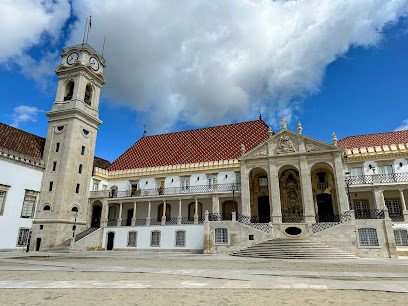
Santa Cruz Church
Explore the enchanting Santa Cruz Church, a historical masterpiece in Coimbra, Portugal, rich in culture and breathtaking architecture.
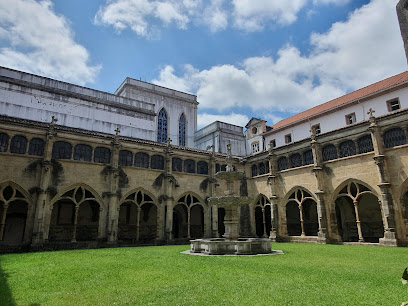
Sé Velha - Coimbra
Discover the breathtaking architecture and rich history of Sé Velha, Coimbra's iconic cathedral, a must-visit for every traveler in Portugal.
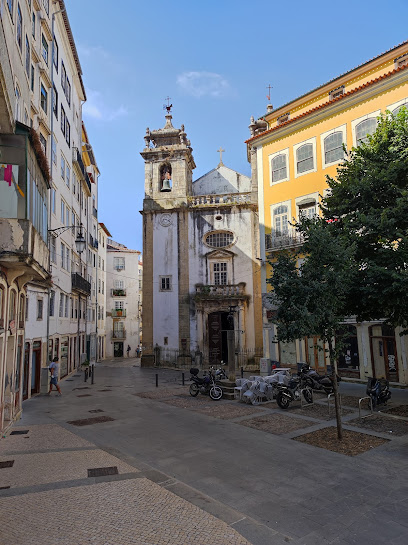
Barbican Gate
Explore the historic Barbican Gate in Coimbra, a captivating entryway that unveils the city's rich cultural heritage and medieval architecture.
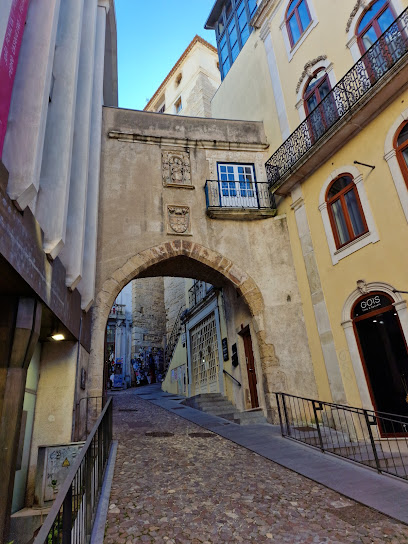
Tower of University of Coimbra
Explore the Tower of University of Coimbra, a historical landmark offering breathtaking views and rich cultural heritage in the heart of Portugal.
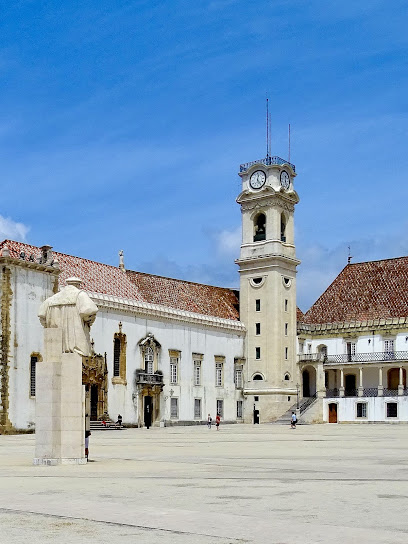
Escadas Monumentais da Universidade de Coimbra
Explore the stunning Escadas Monumentais da Universidade de Coimbra, a historical landmark that showcases Portugal's rich academic heritage and breathtaking architecture.
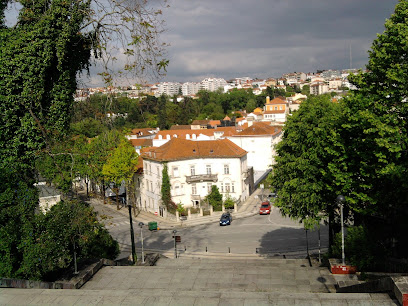
Torre de Anto
Explore Torre de Anto, a historical gem in Coimbra, where architectural beauty meets rich cultural heritage in the heart of Portugal.
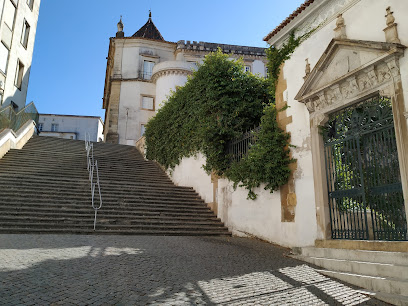
Fonte Nova ou dos Judeus
Explore the rich Jewish heritage at Fonte Nova ou dos Judeus, a historical landmark in Coimbra, where culture and history meet in a serene setting.
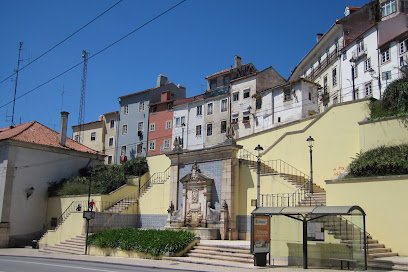
Igreja de Nossa Senhora da Graça
Explore the architectural beauty and spiritual ambiance of Igreja de Nossa Senhora da Graça in Coimbra, a must-visit destination for culture and history enthusiasts.
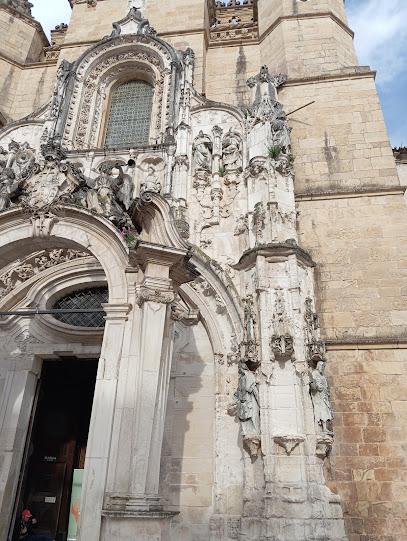
Judería de Coimbra Nueva
Explore the enchanting Judería de Coimbra Nueva, a historical landmark steeped in rich Jewish heritage and captivating architecture in Coimbra, Portugal.
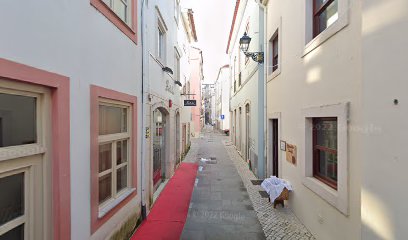
Unmissable attractions to see
Palace of Schools
Discover the breathtaking Palace of Schools in Coimbra, a historical landmark that showcases Portugal's rich academic heritage and stunning architecture.
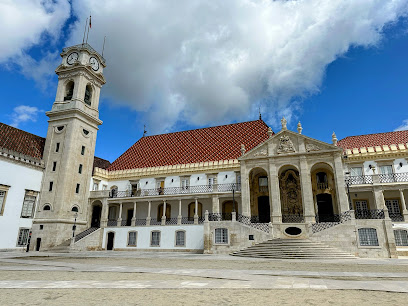
Santa Cruz Church
Explore the rich heritage of Coimbra at Santa Cruz Church, a stunning architectural masterpiece that reflects Portugal's cultural legacy.
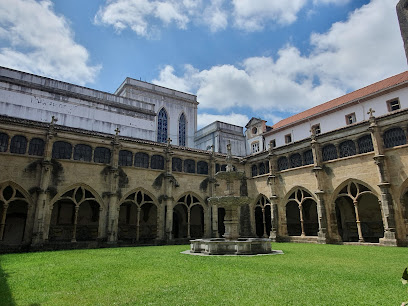
Jardim Botânico da Universidade de Coimbra
Experience the tranquility and beauty of the Jardim Botânico da Universidade de Coimbra, a lush botanical garden rich in history and biodiversity.
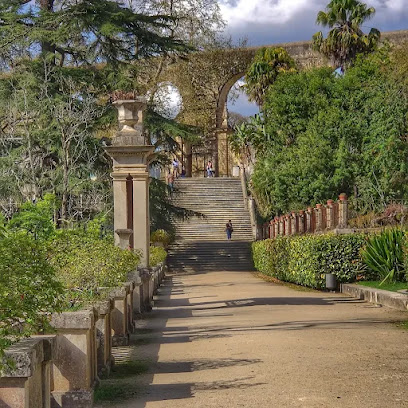
Sereia Garden
Discover the tranquility of Sereia Garden in Coimbra, a beautiful park offering lush landscapes and a peaceful atmosphere perfect for relaxation.
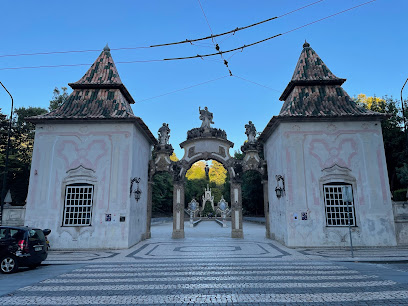
Barbican Gate
Explore the stunning Barbican Gate in Coimbra, a historical landmark that embodies the rich heritage and architectural beauty of Portugal.
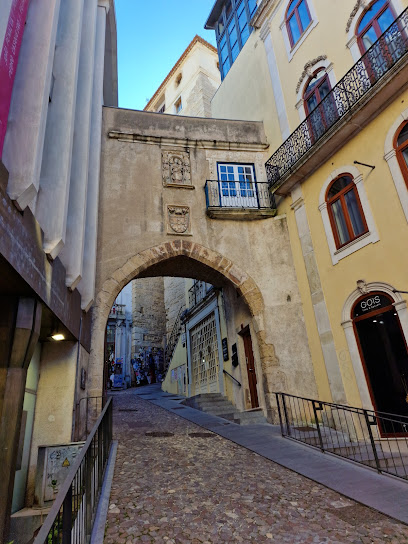
UC Exploratório - Centro de Ciência Viva da Universidade de Coimbra
Explore the wonders of science and the cosmos at UC Exploratório, Coimbra's premier science museum and planetarium for curious minds.
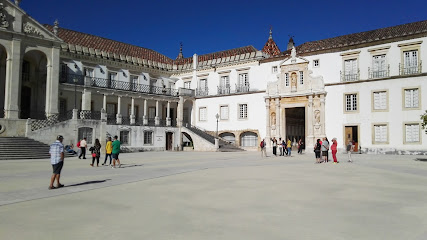
Essential places to dine
Dux Taberna Urbana
Discover authentic Portuguese flavors at Dux Taberna Urbana in Coimbra - where tradition meets modern culinary artistry.
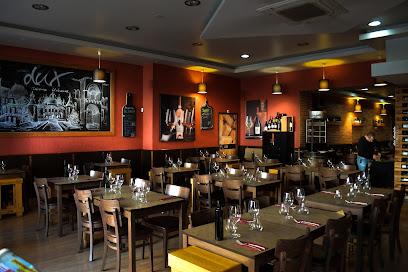
A Cozinha da Maria
Discover authentic Portuguese cuisine at A Cozinha da Maria in Coimbra - where tradition meets taste in every dish.
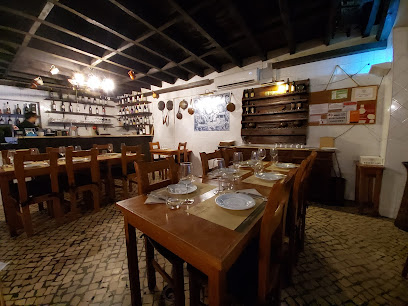
Restaurante Nacional
Experience authentic Portuguese cuisine at Restaurante Nacional in Coimbra – where tradition meets taste.
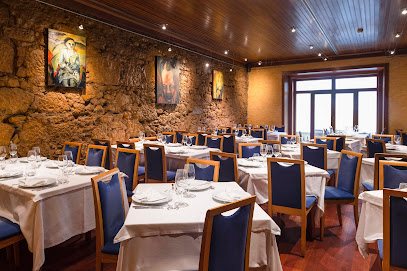
O Garfinho à Portuguesa
Discover authentic Portuguese flavors at O Garfinho à Portuguesa in Coimbra—where every meal is a celebration of culinary tradition.
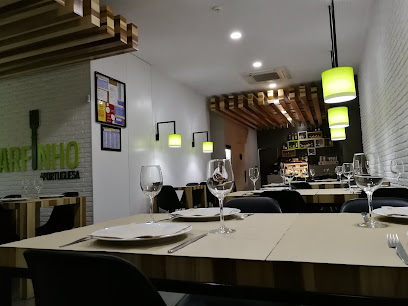
Restaurante No Tacho cozinha portuguesa
Experience authentic Portuguese cuisine at Restaurante No Tacho in Coimbra - where tradition meets flavor in every dish.
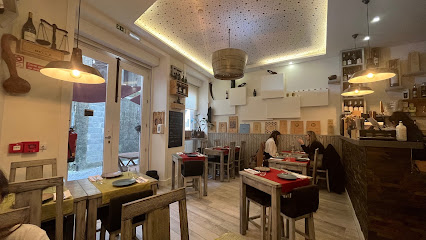
Restaurante Cantinho do Reis
Experience authentic Portuguese flavors at Restaurante Cantinho do Reis in Coimbra - where culinary tradition meets warm hospitality.
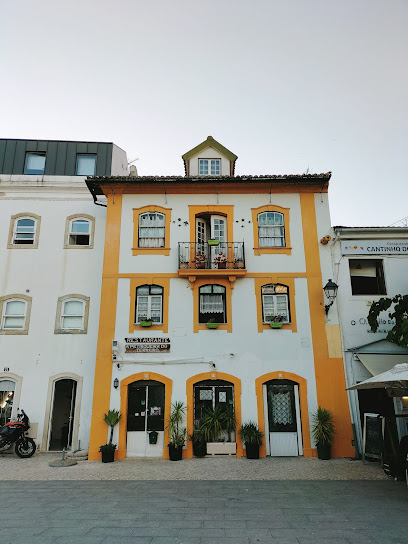
Restaurante Notes Bar & Kitchen
Experience authentic Portuguese flavors at Restaurante Notes Bar & Kitchen in Coimbra - a culinary haven for food enthusiasts.
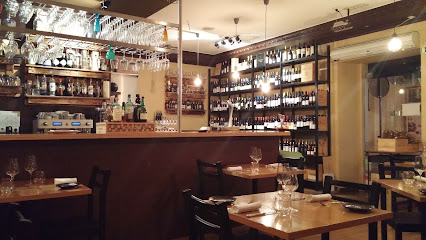
Restaurante Don Chacho B
Experience authentic Portuguese flavors at Restaurante Don Chacho B in Coimbra - a culinary delight awaits every visitor.
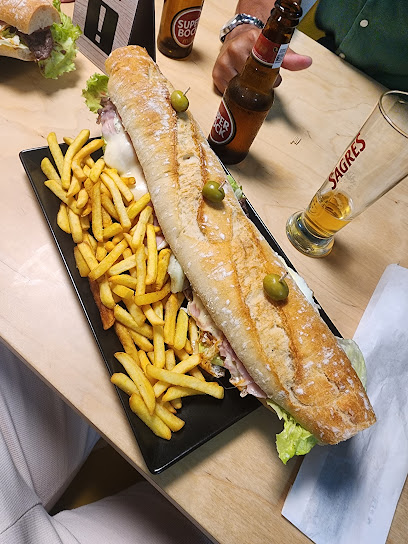
Restaurante Império
Experience authentic Portuguese flavors at Restaurante Império in Coimbra - where tradition meets gourmet excellence.
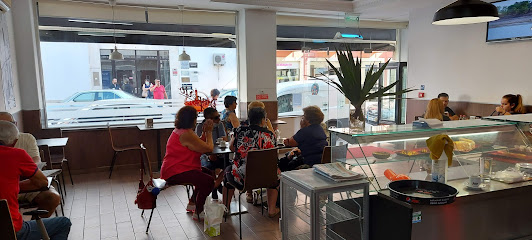
Queijo - Cheese Restaurant
Experience the rich flavors of Portuguese cheese at Queijo - A must-visit culinary gem in Coimbra.
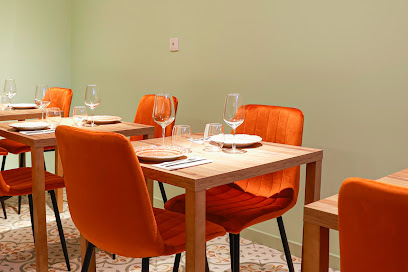
Markets, malls and hidden boutiques
Vibra
Discover Vibra, Coimbra's premier adult entertainment store, offering a diverse selection of intimate products in a welcoming atmosphere.

W52
Discover unique fashion treasures at W52, a chic clothing store in Coimbra offering trendy apparel and stylish accessories.
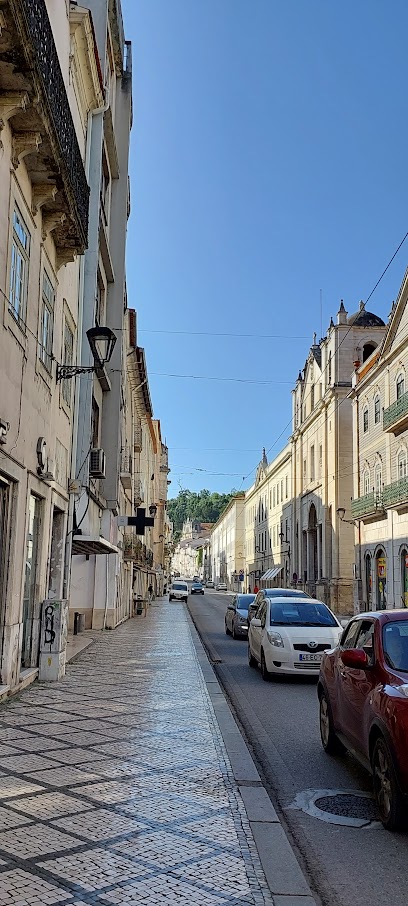
Lili Bao Unipessoal, Lda
Explore Lili Bao, Coimbra's chic clothing store offering unique fashion pieces that celebrate local culture and contemporary style.
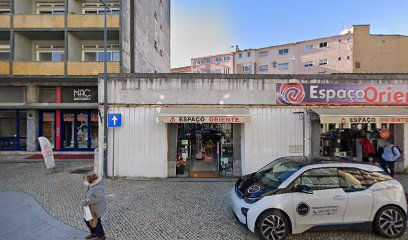
Coimbra Na Bagagem
Discover unique gifts and local crafts at Coimbra Na Bagagem – a charming shop that embodies the spirit of Coimbra, Portugal.
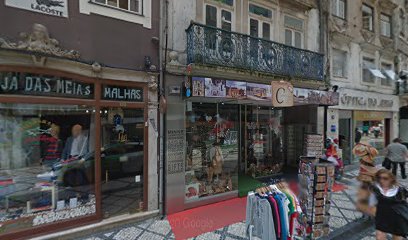
Galeria da Baixa
Explore rustic elegance at Galeria da Baixa, Coimbra's charming furniture store offering unique home goods and floral delights.
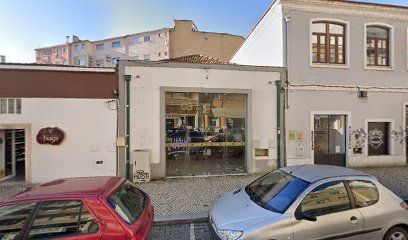
MMSTORE
Explore unique fashion at MMSTORE in Coimbra, a vibrant clothing store showcasing local and international styles for every traveler.
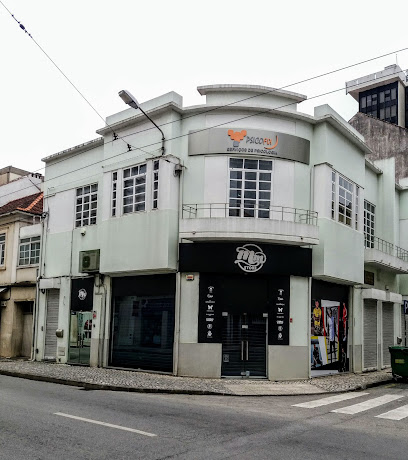
Miss.Lily
Discover unique and stylish clothing at Miss.Lily, Coimbra's top boutique for fashion enthusiasts seeking quality and contemporary designs.
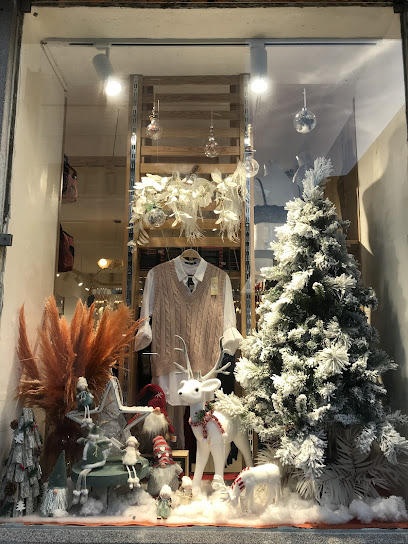
So Many Choices -, Lda.
Explore So Many Choices, Lda. in Coimbra for unique fashion accessories that elevate your style and express your individuality.
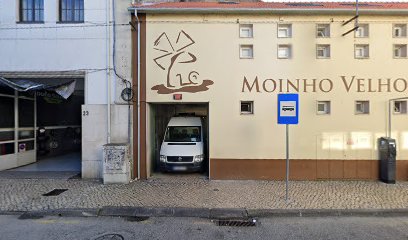
Peso Elagante
Discover unique fashion at Peso Elagante, where contemporary style meets traditional Portuguese flair in the heart of Coimbra.
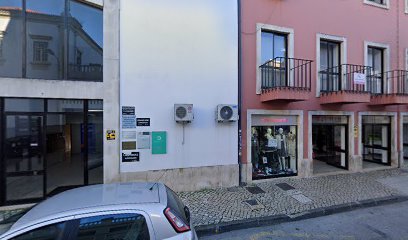
Mvieiratelier
Explore Mvieiratelier in Coimbra for unique women's fashion and an inspiring glimpse into local design education.
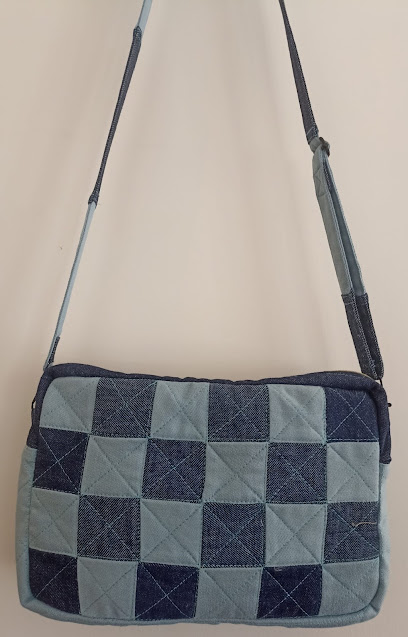
Essential bars & hidden hideouts
RS Coffee Bar
Experience the warmth and charm of RS Coffee Bar in Coimbra, where delicious coffee and light bites await visitors in a welcoming atmosphere.
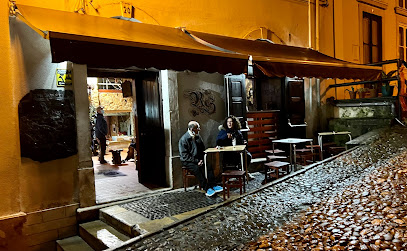
O Reitor
Experience the vibrant nightlife of Coimbra at O Reitor, where delightful drinks and a welcoming atmosphere await.
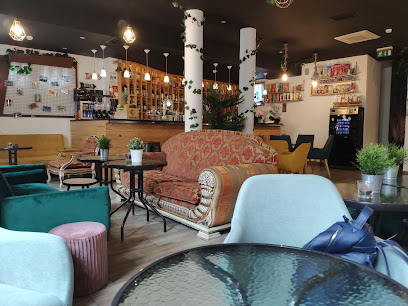
Cabido Bar, Lda.
Discover the lively atmosphere and local flavors at Cabido Bar, a top choice for tourists in Coimbra seeking a vibrant nightlife experience.
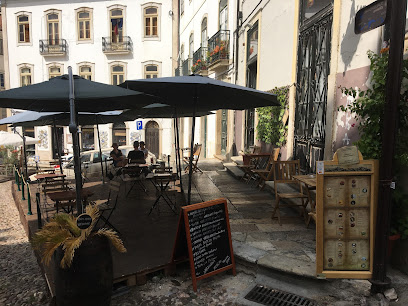
Zaza Café Bar
Discover the charm of Zaza Café Bar in Coimbra, where delightful drinks meet a cozy atmosphere for the perfect getaway.
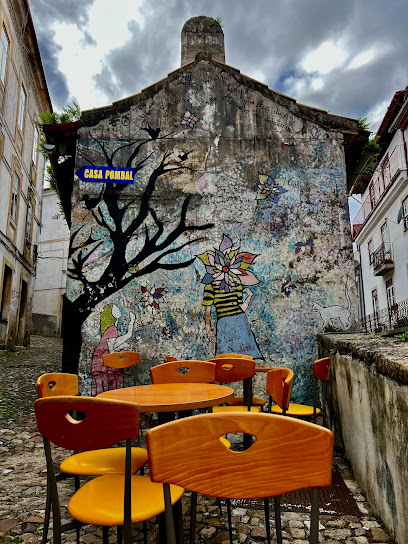
Quebra Bar
Experience the vibrant nightlife at Quebra Bar in Coimbra, where great drinks, live music, and a cozy atmosphere await every visitor.
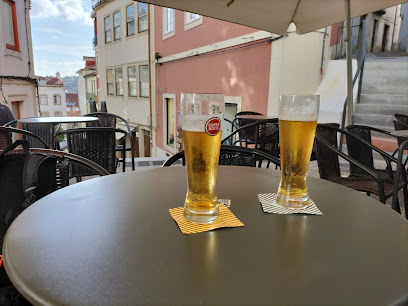
Pinto
Discover Pinto Bar in Coimbra, where local charm meets vibrant nightlife and unforgettable flavors await every visitor.
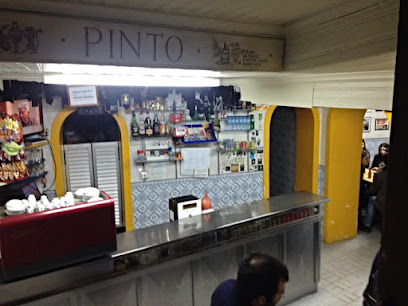
Centro Cultural Dom Dinis
Experience the vibrant culture and local flavors at Centro Cultural Dom Dinis, a must-visit bar in Coimbra, Portugal.
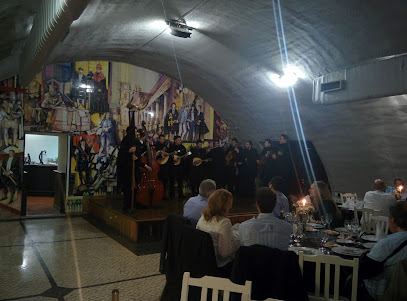
Bar Guitarras
Discover the vibrant nightlife of Coimbra at Bar Guitarras, where music and good vibes meet exceptional drinks in a warm atmosphere.
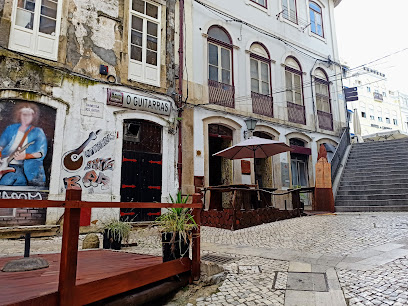
Wine Bar | Garrafeira Baga
Experience the rich flavors of wine at Garrafeira Baga, Coimbra's premier wine bar offering a cozy atmosphere and expert recommendations.
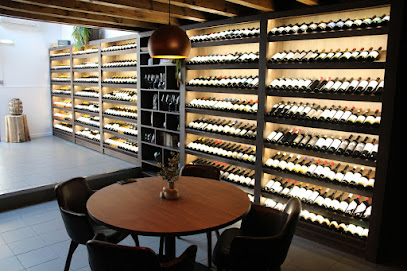
Olivença bar
Discover the lively ambiance of Olivença Bar in Coimbra, where local culture meets vibrant social scenes and refreshing drinks.
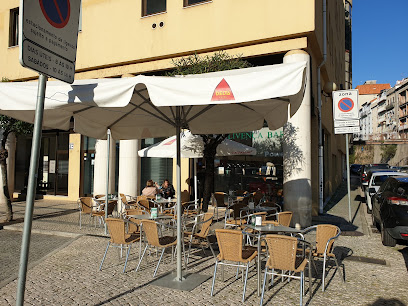
Local Phrases
-
- HelloOlá
[oh-lah] - GoodbyeAdeus
[ah-deh-oosh] - YesSim
[seem] - NoNão
[now] - Please/You're welcomePor favor/De nada
[por fah-vohr/deh nah-dah] - Thank youObrigado
[oh-bree-gah-doo] - Excuse me/SorryCom licença/Desculpe
[kohm lee-sen-sah/deh-scoohl-peh] - How are you?Como está?
[koh-moh ehs-tah] - Fine. And you?Bem. E tu?
[behn/eh too] - Do you speak English?Fala inglês?
[fah-lah een-glehs] - I don't understandNão entendo
[now ehn-tehn-doo]
- HelloOlá
-
- I'd like to see the menu, pleaseGostaria de ver o menu, por favor
[goh-stah-ree-ah deh vehr ooh meh-noo/por fah-vohr] - I don't eat meatNão como carne
[now koh-moh kahr-neh] - Cheers!Saúde!
[sah-oo-deh] - I would like to pay, pleaseGostaria de pagar, por favor
[goh-stah-ree-ah deh pah-gahr/por fah-vohr]
- I'd like to see the menu, pleaseGostaria de ver o menu, por favor
-
- Help!Ajuda!
[ah-joo-dah] - Go away!Vai embora!
[vah-ee ehm-boh-rah] - Call the Police!Chame a Polícia!
[shah-meh ah poh-lee-see-ah] - Call a doctor!Chame um médico!
[shah-meh oom meh-dee-koo] - I'm lostEstou perdido
[ehs-toh pehr-dee-doo] - I'm illEstou doente
[ehs-toh doh-ehn-teh]
- Help!Ajuda!
-
- I'd like to buy...Gostaria de comprar...
[goh-stah-ree-ah deh kohm-prahr] - I'm just lookingEstou só a ver
[ehs-toh soh ah vehr] - How much is it?Quanto custa?
[kwahn-too koosh-tah] - That's too expensiveIsso é muito caro
[ee-soh eh moo-ee-toh kah-roo] - Can you lower the price?Pode baixar o preço?
[poh-deh by-shahr ooh preh-soo]
- I'd like to buy...Gostaria de comprar...
-
- What time is it?Que horas são?
[keh oh-rahs sah-oh] - It's one o'clockÉ uma hora
[eh oo-mah oh-rah] - Half past (10)Meia dezena (10)
[may-ah deh-zeh-nah (10)] - MorningManhã
[mahn-yah] - AfternoonTarde
[tahr-deh] - EveningNoite
[noy-tay] - YesterdayOntem
[ohn-tehm] - TodayHoje
[oh-zheh] - TomorrowAmanhã
[ah-mahn-yah] - 1Um
[oom] - 2Dois
[doh-ees] - 3Três
[trehs] - 4Quatro
[kwah-troh] - 5Cinco
[seen-koh] - 6Seis
[saysh] - 7Sete
[seh-teh] - 8Oito
[oy-toh] - 9Nove
[noh-veh] - 10Dez
[dehz]
- What time is it?Que horas são?
-
- Where's a/the...?Onde fica o/a...?
[ohn-deh fee-kah ooh/ah] - What's the address?Qual é o endereço?
[kwahl eh ooh ehn-deh-reh-soo] - Can you show me (on the map)?Pode mostrar-me (no mapa)?
[poh-deh moh-strahr-meh/noo mah-pah] - When's the next (bus)?Quando é o próximo (autocarro)?
[kwahn-doh eh ooh proh-kssee-moh/ow-toh-kah-roo] - A ticket (to ....)Um bilhete (para ....)
[oom beel-yeh-teh/par-ah]
- Where's a/the...?Onde fica o/a...?
History of Baixa de Coimbra
-
Baixa de Coimbra, as a central neighborhood of the city, traces its roots to the Roman period when Coimbra, known as Aeminium, flourished as an important administrative and commercial center. The remnants of Roman architecture, including the ruins of a Roman theatre, can still be found in the vicinity, highlighting the area's historical significance.
-
The establishment of the University of Coimbra in 1290 marked a pivotal moment in the neighborhood's history. As one of the oldest universities in Europe, it attracted scholars and students, which contributed to the cultural vibrancy of Baixa de Coimbra. The university's influence is seen in the numerous bookstores, cafes, and cultural venues that define the area today.
-
The devastating earthquake of 1755 had a profound impact on Baixa de Coimbra. Many buildings were destroyed or severely damaged, leading to a wave of reconstruction efforts. This period saw the introduction of neoclassical architectural styles in the neighborhood, which can be appreciated in several public buildings and plazas that were rebuilt during this time.
-
The 19th century brought a cultural renaissance to Baixa de Coimbra, fueled by the growth of the bourgeoisie and the expansion of educational institutions. The establishment of theaters, cultural societies, and libraries enriched the local cultural landscape, transforming the neighborhood into a vibrant hub for artistic and intellectual activities.
-
In recent decades, Baixa de Coimbra has undergone modernization while striving to preserve its historical character. Urban renewal projects have aimed to revitalize the area, promoting tourism and local businesses. Efforts to maintain the architectural integrity of historic buildings have also been emphasized, ensuring that the cultural heritage of Baixa de Coimbra remains a vital part of the city's identity.
Baixa de Coimbra Essentials
-
Baixa de Coimbra is centrally located, making it easily accessible from other neighborhoods in Coimbra. You can reach Baixa by walking from nearby areas such as Santa Clara or Almedina, which typically takes about 15-20 minutes. For those coming from the Coimbra-B railway station, you can take a local bus (lines 1, 3, or 4) or opt for a short taxi ride that takes approximately 10 minutes. If you are arriving from the city center, you can simply stroll down towards Baixa, enjoying the scenic views along the way.
-
Baixa de Coimbra is pedestrian-friendly, and many attractions are within walking distance. For those needing to travel further, local buses operate frequently, connecting Baixa to other neighborhoods and attractions in Coimbra. Bicycles can be rented from various vendors throughout the area, providing a fun way to explore the city. Taxis are also available, and ride-sharing apps are operational in the area for convenient transport.
-
Baixa de Coimbra is generally safe for tourists; however, standard precautions should be taken. While violent crime is rare, petty crimes such as pickpocketing can occur, especially in crowded areas and during busy tourist seasons. Avoid poorly lit streets at night and keep an eye on your belongings. Areas like the upper streets near the University can be less frequented at night, so exercise caution when wandering alone.
-
In case of an emergency, dial 112 for police, fire, or medical assistance. Local hospitals include Hospital dos Covões and Centro Hospitalar e Universitário de Coimbra. Pharmacies are widely available, and many offer 24-hour services. It is advisable to have travel insurance that covers medical emergencies while visiting.
-
Fashion: Do dress modestly, especially when visiting churches and historical sites. Don't wear overly casual or beachwear in these settings. Religion: Do respect local customs; when entering churches, cover your shoulders and knees. Public Transport: Do be polite and offer your seat to the elderly or those in need. Don't eat or drink on public transport. Greetings: Do greet with a warm 'Olá' and a handshake. Don't be overly familiar; maintain personal space. Eating & Drinking: Do try local specialties like 'Chanfana' and pastries. Don't waste food or refuse offered hospitality, which is considered impolite.
-
To experience Baixa de Coimbra like a local, visit the Mercado Municipal, where you can find fresh produce and artisanal goods. Engage with local vendors, as they often share stories about the city's culture and history. Don't miss the chance to enjoy a coffee in one of the historic cafés while people-watching. Attend local events or festivals if your visit coincides with them, as they showcase the vibrant community spirit.
Nearby Cities to Baixa de Coimbra
-
Things To Do in Aveiro
-
Things To Do in Tomar
-
Things To Do in Viseu
-
Things To Do in Porto
-
Things To Do in Caldas da Rainha
-
Things To Do in Lamego
-
Things To Do in Vila Real
-
Things To Do in Guimarães
-
Things To Do in Braga
-
Things To Do in Viana do Castelo
-
Things To Do in Ponte de Lima
-
Things To Do in Lisbon
-
Things To Do in Sintra
-
Things To Do in Chaves
-
Things To Do in Évora













